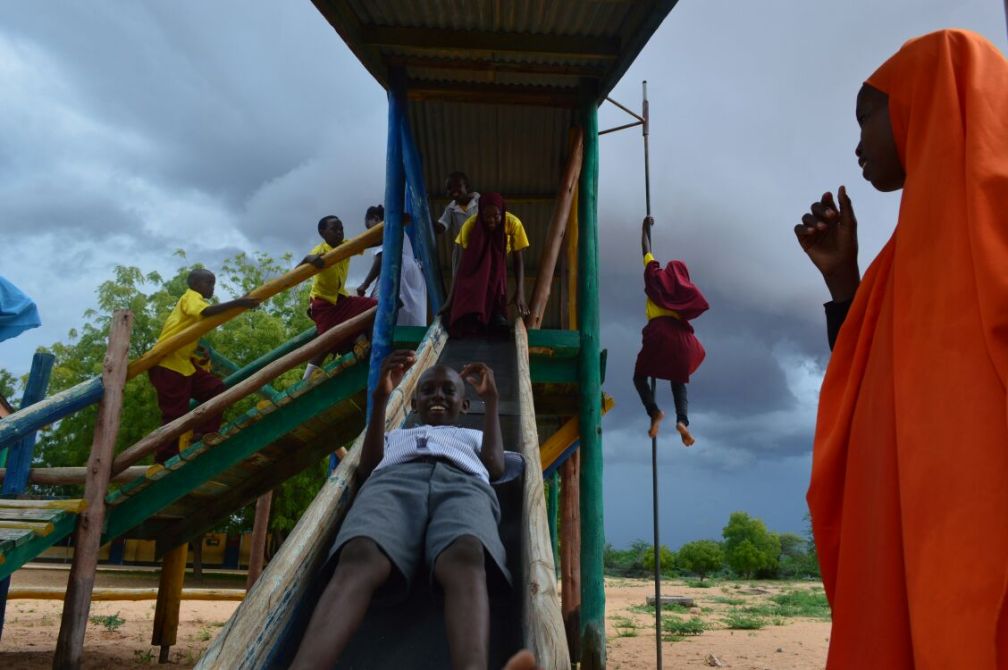By Caleb Ndaka
Kids Comp Camp is a program in Kenya that aims to teach young people in marginalised communities basic digital literacy skills that enable them to use digital devices for learning and leisure. The camps run during school holidays in April, May and December and during weekends. It is an initiative of Kompyuta Mashinani. Despite security concerns after the Garissa University College attack, #TeamCompCamp successfully ran the April 2015 Kids Comp Camp in Madogo Village in Tana River County, which is only three kilometers from Garissa Town. More than 100 kids from five different schools attended the camp.
How Kids Comp Camp Began
While in university at JKUAT, we used to have weekend getaways dubbed ‘Plot Plot’. On our way back from one of our getaways at Kitengela, we had a conversation about how we could be more impactful on society. This invoked ideas about how we could match our fun experiences with positive impact. For instance, we all had laptops and a bit of pocket money. Therefore, we thought about doing a road trip to a school in a village with no access to computers and training the pupils on computer basics. This is how Kids Comp Camp began. Since then, we have trained more than 200 pupils aged 9 to 14, from five different school in two counties – Machakos and Tana River County.
Impact at the Margins: How We Do It
Kids comp camp consists of three teams: Training Team that puts together the training content, Communication Team that manages internal and external communications and Maintenance Team that works out logistics. The programme’s decision to focus on marginalized communities is informed by research that revealed a huge digital gap between children growing up in rural and urban areas. Statistics put the ratio of computers to pupils at 1:15 in urban areas compared to an unacceptable 1:150 in rural areas. This is in regions where if interventions are not made to improve digital literacy, young able minds will lack the competitive edge required to engage in todays’ information- driven world, further compounding their marginalization.
The program aims to reach one thousand young learners in five marginalized regions in Kenya by the end of 2015. It also aims to set up 10 equipped and easily accessible ‘Kids’ Comp Labs’ at ‘Kids Comp Clubs’ in local communities. These will support continuous learning and advancement beyond the basic computer skills acquired by the young learners at the Kids Comp Camps.
Connect with Kids Comp Camp: info@kidscompcamp.com | #kidscompcamp on Twitter


